I went to meet the doctor, but he was not at the clinic The receptionist said, "You have to wait, the doctor must be on the way";In general, Have to is more frequent in conversation (or spoken English) than Must Must is used more in formal writing, especially in written notices, rules or instructions Lesson tags Advice, Have, Modal Verbs, Must, Obligation Must English Modal Verb Mustn't vs Don't Have ToCan Can't Exercises 567 Mustn't vs Don't Have to Exercises 1 / 2 / 3 10 Must vs Have to / Has to Exercises 1 / 2 / 3 11 Must / Mustn't / Needn't / Have to 1213 Modals With Passive Voice 1 / 2 14 Mustn't vs Needn't vs Can't
Http Www Farq Xyz Pdf C37 Pdf
Has no vs does not have
Has no vs does not have-Explore Triton Triton's board "must not vs don't have to" on See more ideas about grammar worksheets, grammar, english grammarIt is not allowed It is important that you do NOT do something The prohibition can be subjective (the speaker's opinion) or objective Examples Children mustn't talk to strangers Cars mustn't park in front of the entrance




Mustn T And Don T Have To English Esl Worksheets For Distance Learning And Physical Classrooms
You have to show your passport at passport control (It's the law) Jenny has to do homework every evening (Her parents told her to do her homework) Tom had to work late last night (He hadn't finished his work) You have to tell him! Must vs have to We can usually use "must" and "have to" interchangeably, EXCEPT for when we are talking in the first person – When talking about an internal obligation (an order we give ourselves), we use must I must remember to call my grandmother – When talking about an external obligation (an order someone And then, in negative sentences (for example, don't have to and mustn't), the meanings are not at all similar This means you must be careful about which verb you use Let's take a closer look at how English speakers use these verbs in everyday conversation I want you to learn how to use them in the same way
There is a big difference between telling someone "you mustn't drink alcohol" and telling him "you don't have to drink alcohol" meaning must not means that the action is illegal or dangerous if i overhear the first speaker, i think this is a doctor telling someone that his health will be ruined if alcohol crosses his lips Use "don't have to" verb (infinitive) To say that something is not necessary To say that there is no obligation 7 We don't have to wear a uniform at this school She doesn't have to work on Saturdays 8 Use "must" verb (infinitive) To talk about rules To talk about obligations 9Note the difference in meaning between mustn't and don't have to In negative sentences we often use mustn't to say that something is against the rules, or against the law You mustn't smoke on buses (Smoking is against the rules)
Should are Must have different meanings and each with various common usages In your example, "should have called" means an action did not occur that you would have liked to have occurred Also, in your sentence, if you have "must have called", it represents a Mustn't vs Don't/ Doesn't Have to When to Use Mustn't/ Must not Meaning It is prohibited;Learn the differences between these modal verbs must vs have to, and mustn't vs don't/doesn't have to Mus




Must And Have To Difference A Free Guide Post
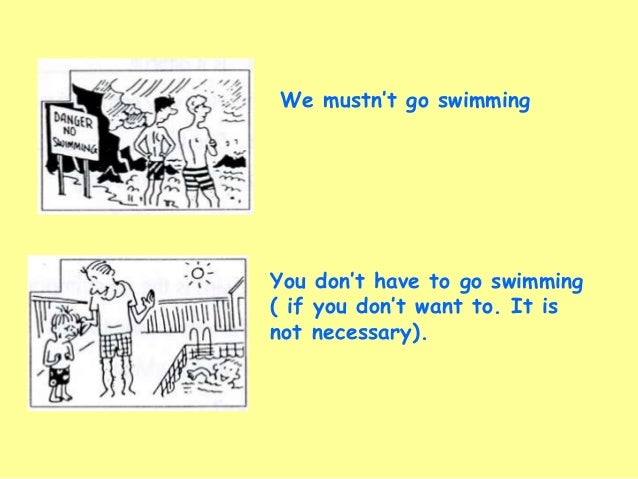



Mustn T Blog
Must vs have to! Grammar Both must not and do not have to are modal verbs They are followed by a verb in the simple or base form (no changes to its structure) Must not is much stronger than do not have to Also, must not can only be used to talk about the present or the futureLearn the differences between these modal verbs must vs have to, and mustn't vs don't/doesn't have to




Meaning Examples Can Could May Might Will Would Shall Should Must Shakespeare S English
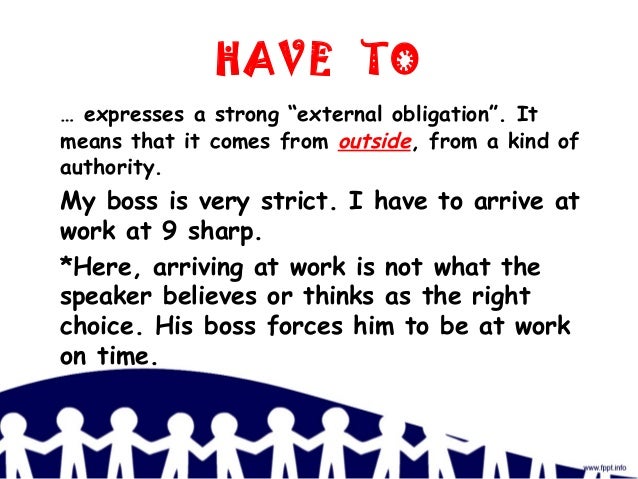



Must Mustn T Have To Don T Haveto
Mustn T Vs Don T Have To Woodward English Mustn T Vs DonMustn T Vs Don T Have To Woodward English Mustn T Vs DonWe can do it, but it's not necessary You don't have to wait here (=You can do it, but it's not necessary) mustn't




Modal Verbs Grammar Review Msc Sanda Kataviaui English




Must Mustn T Can Have Don T Have To English Esl Worksheets For Distance Learning And Physical Classrooms
Wenn du sagen möchtest, dass du etwas nicht tun musst, dann verwende need not, nicht must not(Möchtest du must verneinen, dann verwende not allowed to)You must take a stand for yourself, or else you have to follow others command; Must, have to, dan should jika diterjemahkan ke dalam bahasa Indonesia memiliki arti yang sama, yakni "harus" Ketiganya pun memiliki beberapa fungsi yang sama Meskipun demikian, ketiga modal ini tidak selalu bisa digunakan dalam konteks yang sama Dalam konteks apa saja must, have to, dan should digunakan?Questions – Must or Have to?We can do it, but it's not necessary You don't have



Learn English Grammar Visual Must Have To Must Not Don T Have To Need Not Learn British English




Modal Verbs Can Must Mustn T Should Have To Worksheet
Show all questions =2 Answers2 Yes a big difference Cannot die means the person is immortal and incapable of death Must not die means that they are mortal, thus very capable of death and the mission requires you to keep them alive In this setting they are pretty much the same Language can have a literal meaning, a canonical meaning (the first thing you think(That's my (strong) opinion) You don't have to eat that if you don't like it




Have To Don T Have To Must Mustn T




Modal Verbs What Are Modal Verbs Special Verbs
Must is a modal auxiliary verb, and have to is a simple auxiliary that is used just like a modal verb, but it's not a modal verb The reason why we are learning it together is that both these verbs have similar functions In this article, I'll help you master all the differences between must and have to, and how to use these verbs There is a video lesson at the end that explains how toNote that we don't use must to express obligation in the past We use have to instead I had to pay £85 to renew my passport last week No obligation don't have to We use don't have to to show that there is no obligation You can do something if you want to but it's not compulsoryMustn't vs don't have to don't have to You don't need to do it;
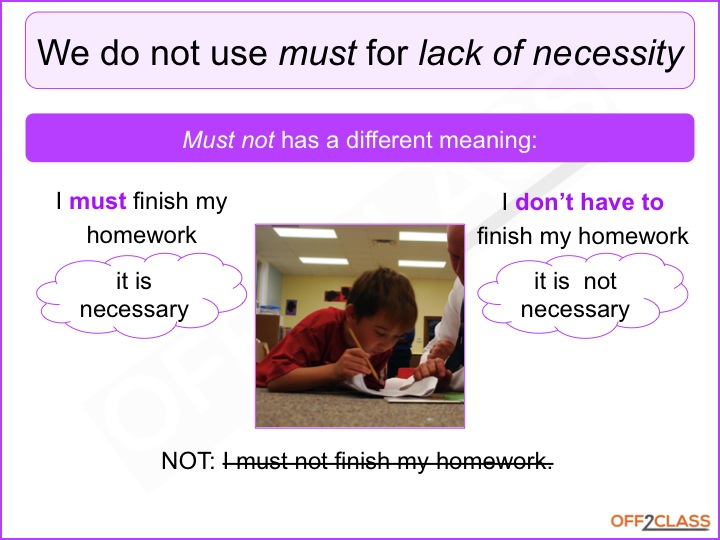



Teaching Must And Have To Necessity Modals Off2class




Calameo 5c
EnglishClub Learn English Grammar Verbs Modals have to, must have to, must Have to is NOT an auxiliary verb (it uses the verb have as a main verb) We include have to here for convenience Must is a modal auxiliary verb In this lesson we look at have to, must and must not, followed by a quiz to check your understanding have to for objective obligationMustn't vs don't have to don't have to You don't need to do it;However, in their negative forms, mustn't and don't have to have completely different meanings • Mustn't expresses prohibition You mustn't drive You are prohibited to drive You are not allowed to drive • Don't have to expresses the absence of obligation or necessity You don't have to drive




7c Have To Don T Have To Must Mustn T Ppt Download
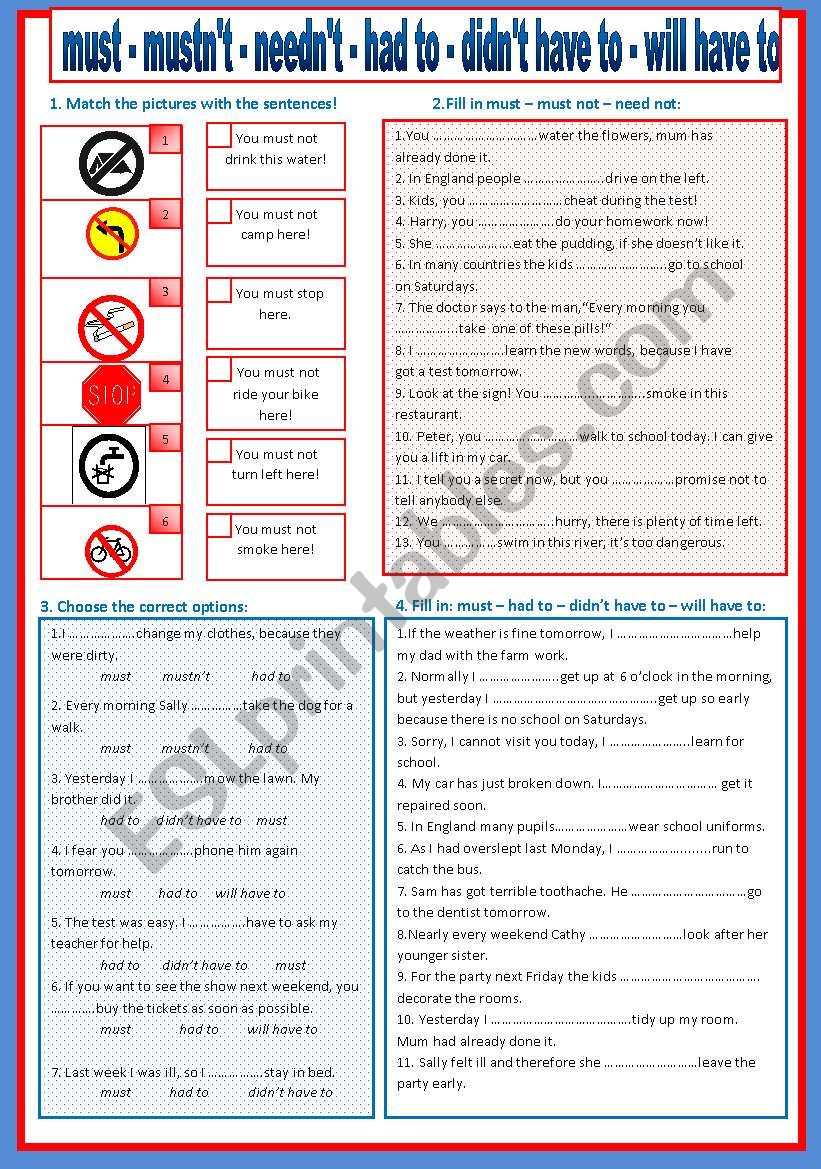



Must Mustn T Needn T Had To Didn T Have To Will Have To Esl Worksheet By Lcio
Must vs have to! Introduce the grammar by having the students take a look at the grammar sheet below Discuss the differences between 'have to' and 'must' in the positive form Make sure to point out that 'have to' is used for daily routines while 'must' is used for strong personal obligation Discuss the differences between 'don't have to' and 'mustn't' Synonym for Can't Must not is when you are able but make yourself not no because of another issue my friend invited me to the party, but I can't go because I'll be out of town my friend invited me to the party, but I mustn't go because my mom wouldn't be happy"Cannot" or "can't" is used talk about what someone is not able to do
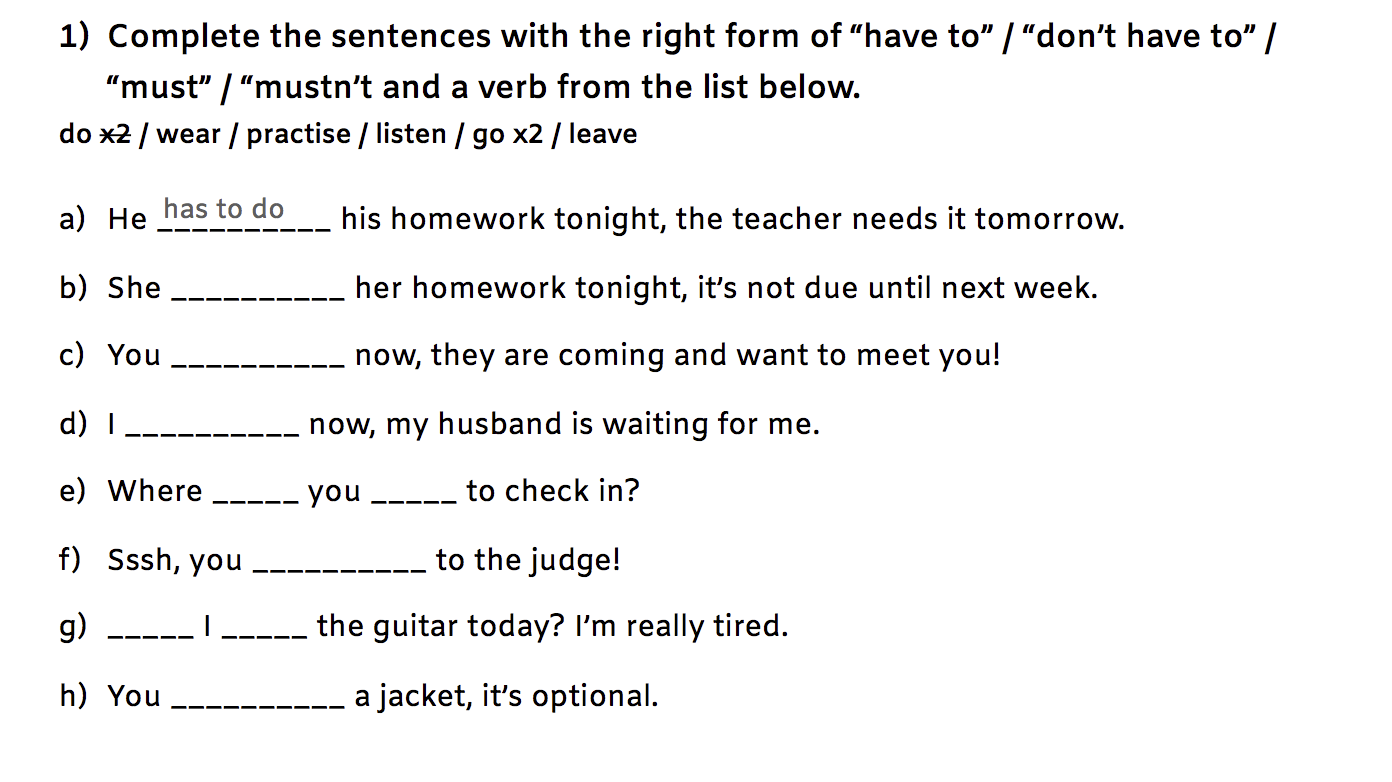



81 Free Must Worksheets



Modal Verbs 1 Can Can T Could Must Mustn T Have To Don T Have To May May Not Docsity
No obligation Don't have to and mustn't have opposite meanings We say that we don't have to do something when we don't need to do something; Police have to arrest the criminals as soon as possible Criminals must be lifesentenced; 'must not' or 'don't have to' 5 replies 'must not' or 'don't have to' T tonyjab Member Hi The following sentence appears in an exam without a context, which is the correct answer please You(must not/don't have to) go at the maximum speed 6/25/ AM Last edited 6/25/ AM {1} Share on Facebook;




Using The English Passive Voice With Different Tenses Eslbuzz Learning English
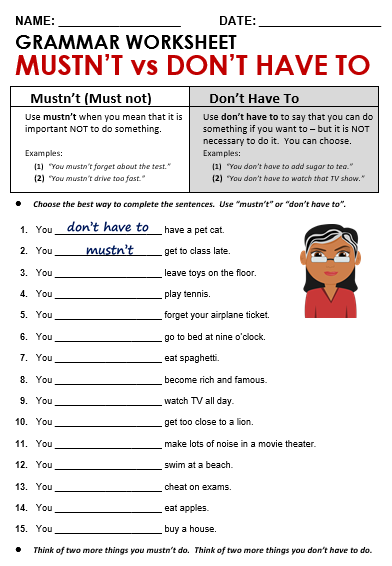



Must Necessity All Things Grammar
Have to Must Not vs Don't Have to!1 Die Verwendung von must, must not (mustn't) und need not (needn't) Die Modalverben must, must not und need not sind in allen Personen gleich Es wird auch bei he/she/it keine Endung angehängt Achtung! 「You don't have to study English」 英語を勉強 する必要はありません 。 don't have toが「しなければならない」の反対の意味である「〜しなくてよい」であるのに対して、must notは「〜してはいけない」と逆の意味になっていません。




Must Mustn T Can Have Don T Have To English Esl Worksheets For Distance Learning And Physical Classrooms




Mustn T And Don T Have To English Esl Worksheets For Distance Learning And Physical Classrooms
Must, have to, mustn't, needn't 1 The use of must, must not (mustn't) and need not (needn't) The modals must, must not and need not have the same form regardless the subjectWe can do it, but it's not necessary You don't have to wait here (=You can do it, but it's not necessary) mustn'tNo obligation Don't have to and mustn't have opposite meanings We say that we don't have to do something when we don't need to do something;




Level 2 English Chapter 11 Must Must Vs Should Must Vs Don T Have To




Have To Don T Have To Must Mustn T
Learn the differences between these modal verbs must vs have to, and mustn't vs don't/doesn't have to15nov18 Must vs have to!In these examples, you might have observed that the word must is



1
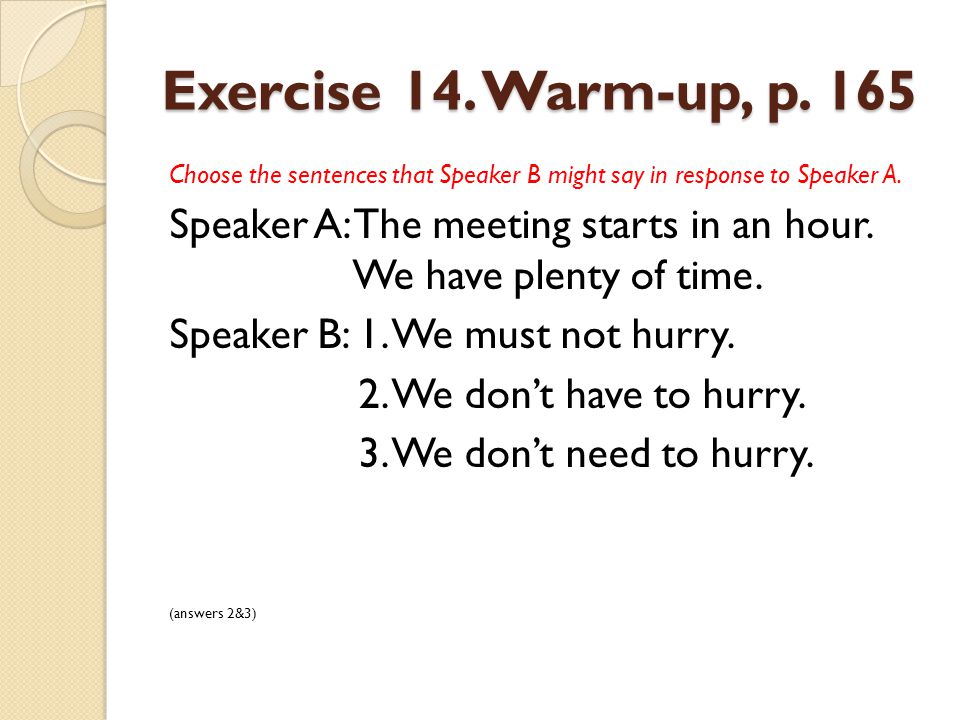



Modals Part Ppt Download
() They don't have to study hard for their exams Ejemplos de mustn't – prohibición en inglés Mustn't, en cambio, habla de prohibición algo que no debes hacer Así, es muy diferente a don't have to, que habla de falta de obligación () You must call me after dinner I have something important to tell youI do not have to wait for a bus Without additional context, this sentence could mean any of the following things I have a car I don't have to take the bus The bus is reliable and arrives frequently I don't have to wait and wait and wait for it to arrive I can leave this bus stop at any time No one is forcing me to be hereThere is a BIG difference in meaning between Mustn't and Don't have to Mustn't means something is prohibited or it is not allowed It is important that you do NOT do something Don't have to means there is NO obligation to do something




Mustn T Vs Don T Have To What Is The Difference Youtube




Mustn T Vs Don T Have To Woodward English
Don't Have to Do—Not Required, but Possible The negative form of "have to" expresses the idea that something is not required It is, however, possible if so desired You don't have to arrive before 8 They didn't have to work so hard We don't have to work overtime on Saturdays She didn't have to attend theCan vs Be Able To With Tenses 3 Can vs Could Exercise 4 Can Can't Exercises 567 Mustn't vs Don't Have to Exercises 1 / 2 / 3 10 Must vs Have to / Has to Exercises 1 / 2 / 3 11 Must / Mustn't / Needn't / Have to 1213 Modals With Passive Voice 1 / 2 14 Mustn't vs Needn't vs Can't Similar Exercises MODALS V3 Practice Test Ought to It's late I must get going!



1
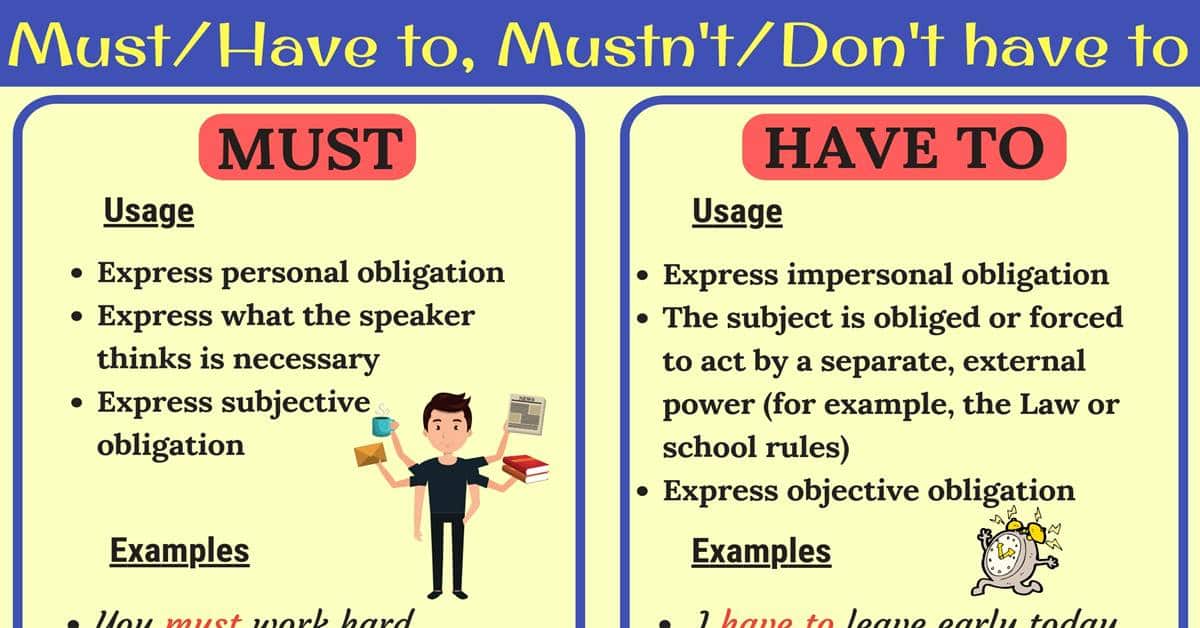



Must Vs Have To Must Not Vs Don T Have To 7esl
Must not and don't have to don't mean the same, unfortunately Must not means that you should not do something It's not a good idea or it's forbidden Not have toNAME _____ DATE GRAMMAR WORKSHEET MUSTN'T vs DON'T HAVE TO Mustn't (Must not) Don't Have To Use mustn't when you mean that it is important NOT to do something Examples (1) "You mustn't forget about the test" (2) "You mustn't drive too fast" Use don't have to to say that you can do something if you want to – but it is NOTYou don't have to eat that if you don't like it (I am not obliging you to eat it = No te estoy obligando a que lo comas) La forma negativa, "don't" / "doesn't" / "didn't have to", significa que uno no está obligado a hacer algo




The Difference Between Mustn T And Don T Have To In English Grammar Modal Verbs English Grammar English Language Learning




Slide 1 Introducing And Greeting People 1 Formal
Mustn't Don't have to = Do not have to We use don't have to to say that there is no obligation or necessity to do something For example "You don't have to do the exercises at the end of this page" Mustn't = must not We use mustn't to show that something is not allowedModals with "Not" 1 Must not, Do not have to Choose the best modal for each sentence Which is best don't have to or mustn't?Mustn't / don't have to Mustn't do something ==> it's necessary not to do it Example fire is dangerous you mustn't play with it Don't have to do something ==> you don't need to do it but if you want, you can Example you don't have to tell me everything Good luck, everybody




Have Don T Have Must Mustn T Ppt Download




Should Vs Must Should We Use Should To
As the comments say, "I have not to" is an incredibly rare expression in English If I've heard anybody use "I have not to", I have forgotten it But given the rules of English grammar, it should mean the same thing as "I don't have to" The only difference between "I have not to" and "I don't have to" is that one uses dosupport andIn this ESOL lesson we look at the difference between MUST NOT and DO NOT HAVE TOBe careful, there is a big difference in meaning between the twoWe compare




Modal Auxiliaries Modal Auxiliaries Modals Dont Have An
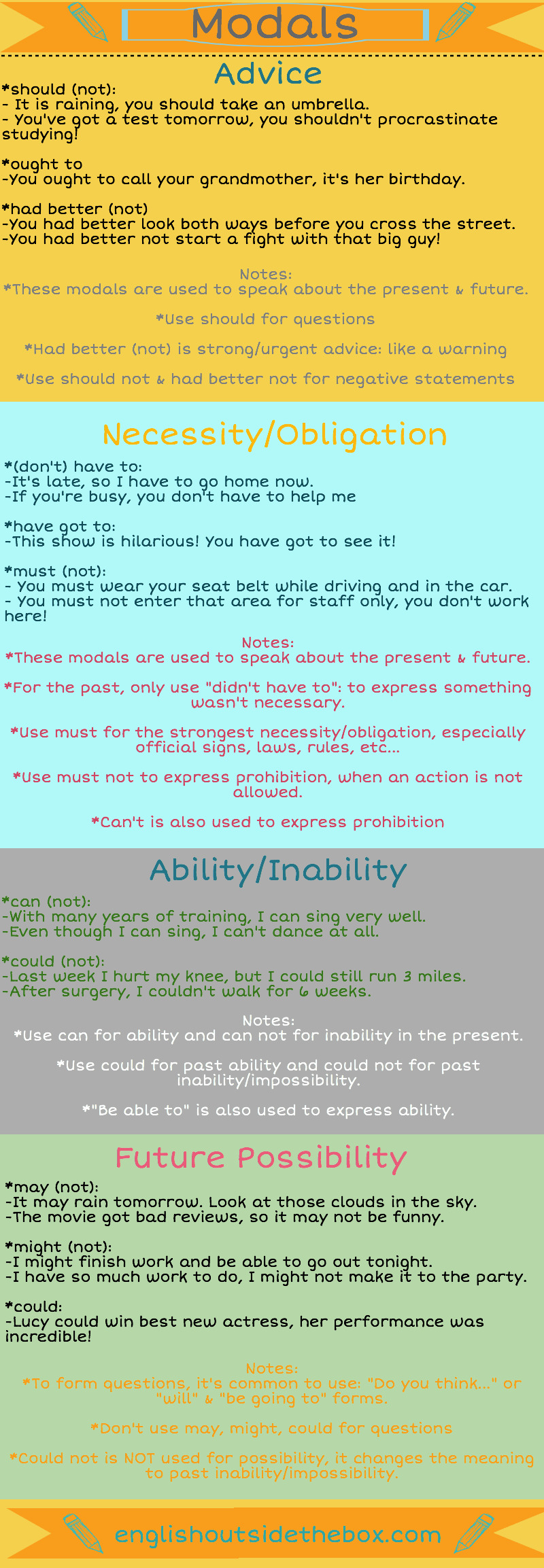



Free Friday Grammar With Modal Review English Outside The Box




Movie Activity Worksheet




Confusing Words In English And Some Common Mistakes 04




Mustn T Vs Don T Have To What S The Difference Youtube
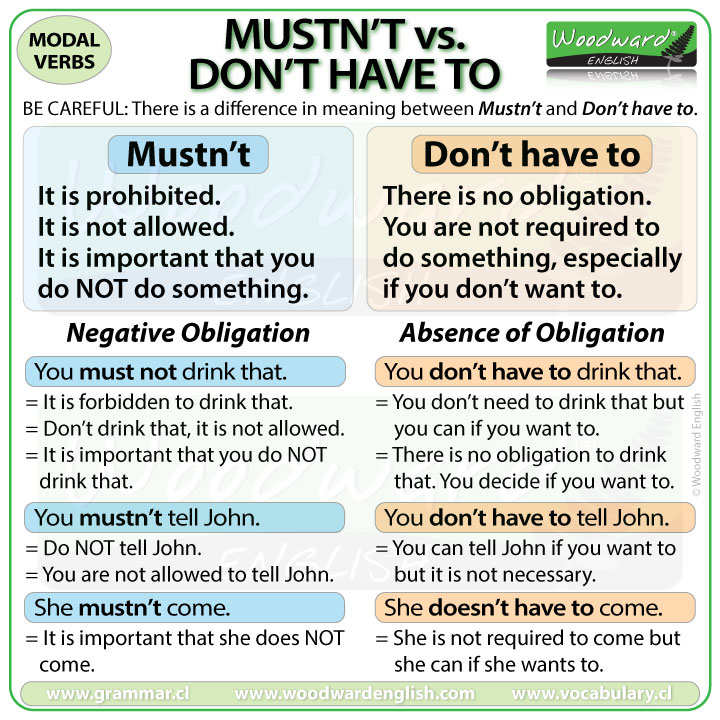



Mustn T Vs Don T Have To Woodward English



Must Mustn T Have To Don T Have To Our English Blog
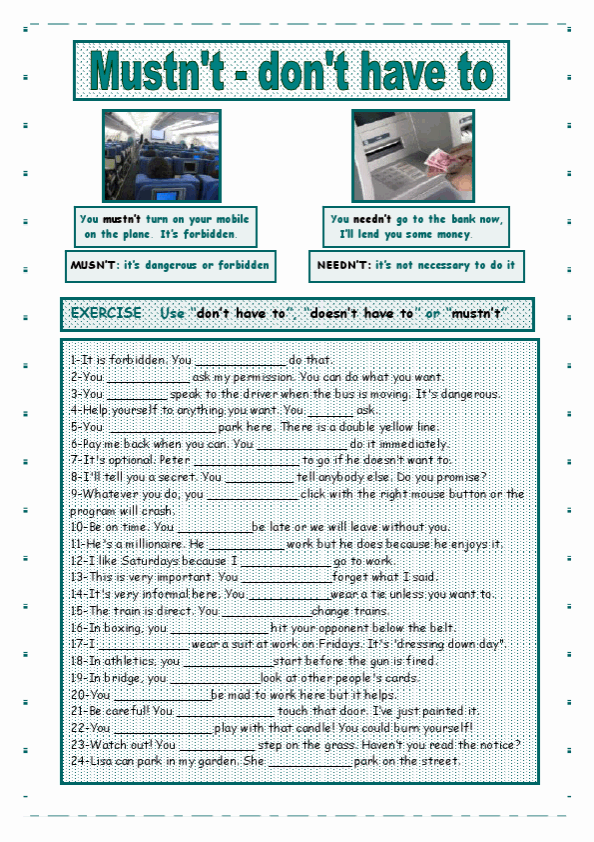



Must Have To Exercises Free Printable Must Have To Esl Worksheets




Test English Prepare For Your English Exam




Must Must Not Have To Don T Doesn T Have To English With A Smile




Modal Verbs For Obligations Negative And Questions Grammartop Com
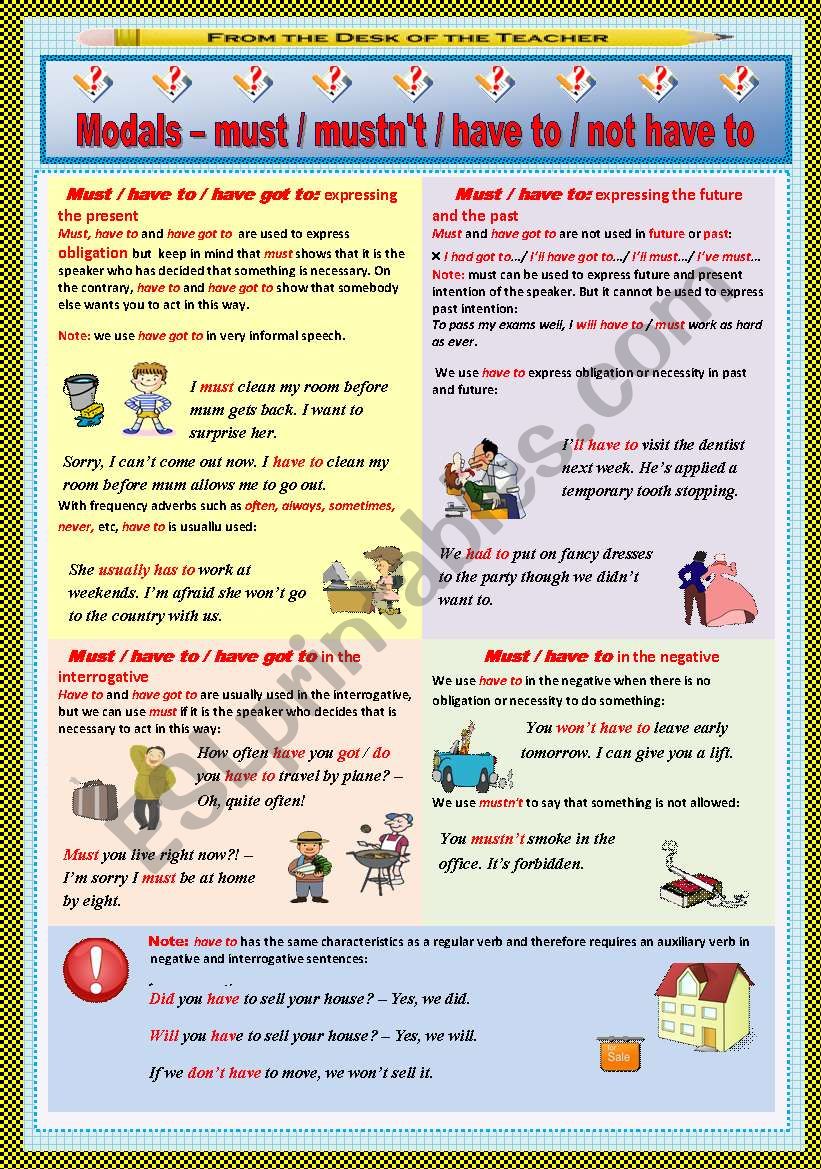



Modals Must Mustn T Have To Not Have To Esl Worksheet By Junya
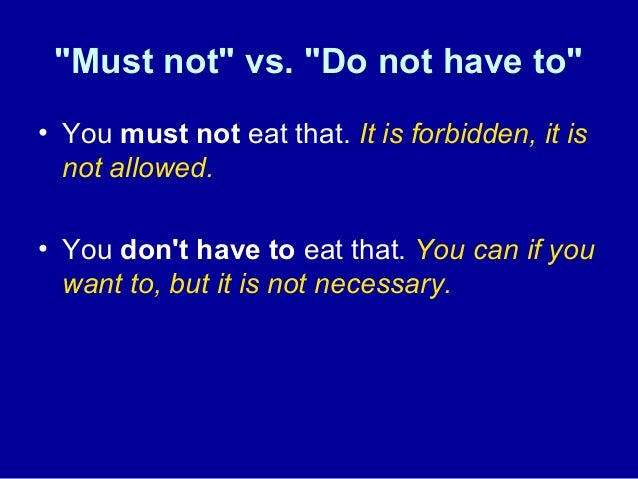



Modals Of Possibility




Learn English With Demi And Irwan Modal Verbs And Their Substitutes




Mustn T Vs Don T Have To What S The Difference Youtube
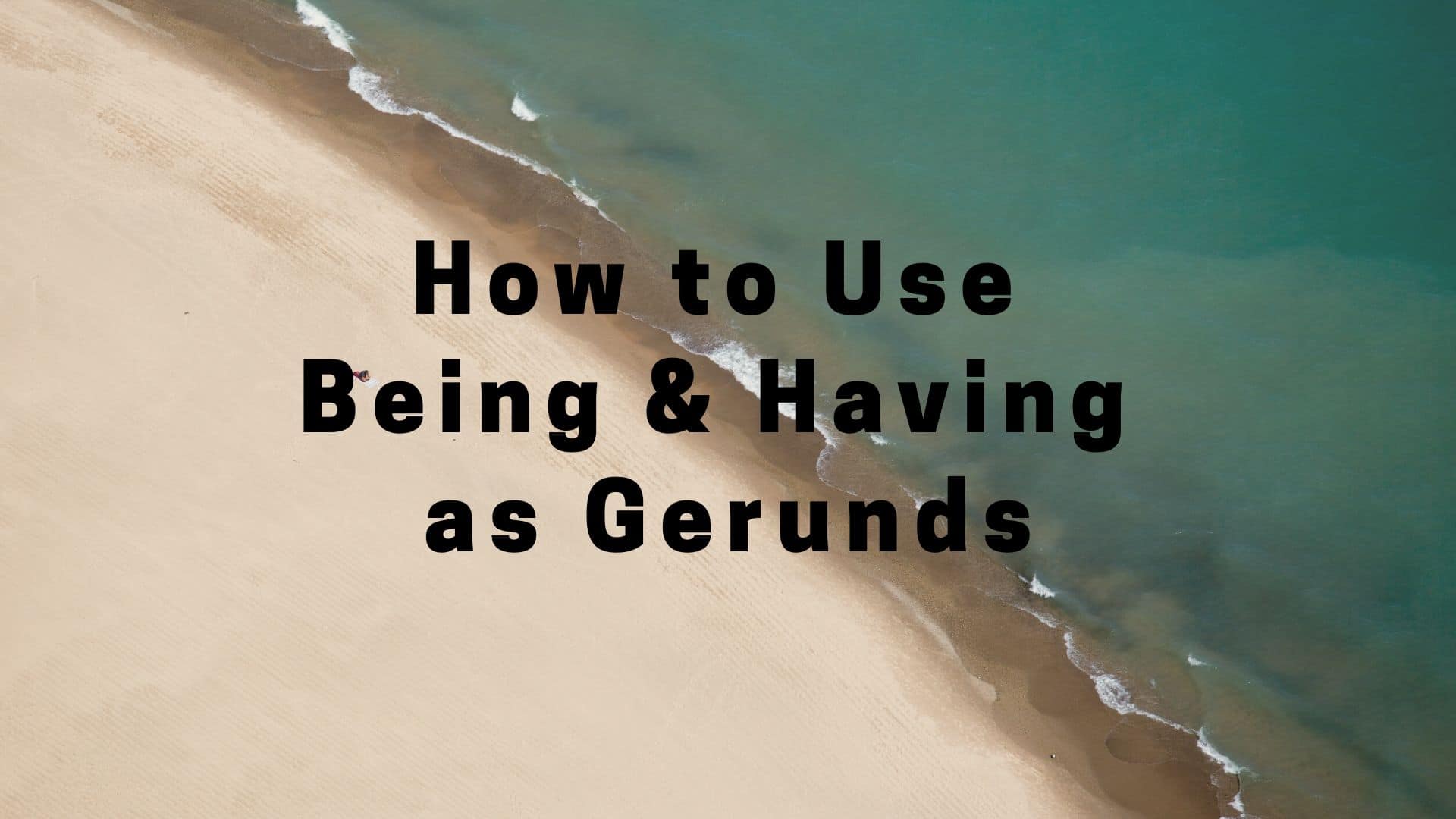



What S The Difference Must Not Vs Don T Have To Pela




American English At State Happy Monday We Don T Have To Keep Posting About Modal Verbs But We Really Want To Last Week We Posted About The Modal Verbs Must And Should



Http Piimt Us Piimt Module Demande Fichier Attachement 279 Pdf




The Difference Between Must Not And Don T Have To Youtube




Test English Prepare For Your English Exam




Mustn T Vs Don T Have To What Is The Difference Youtube



What S The Difference Must Not Vs Don T Have To Pela




Must Vs Have To Must Not Vs Don T Have To 7esl Teaching English Grammar Modal Verbs English Phrases




To Express Obligation Must Mustn T Must Not Fourth Grade
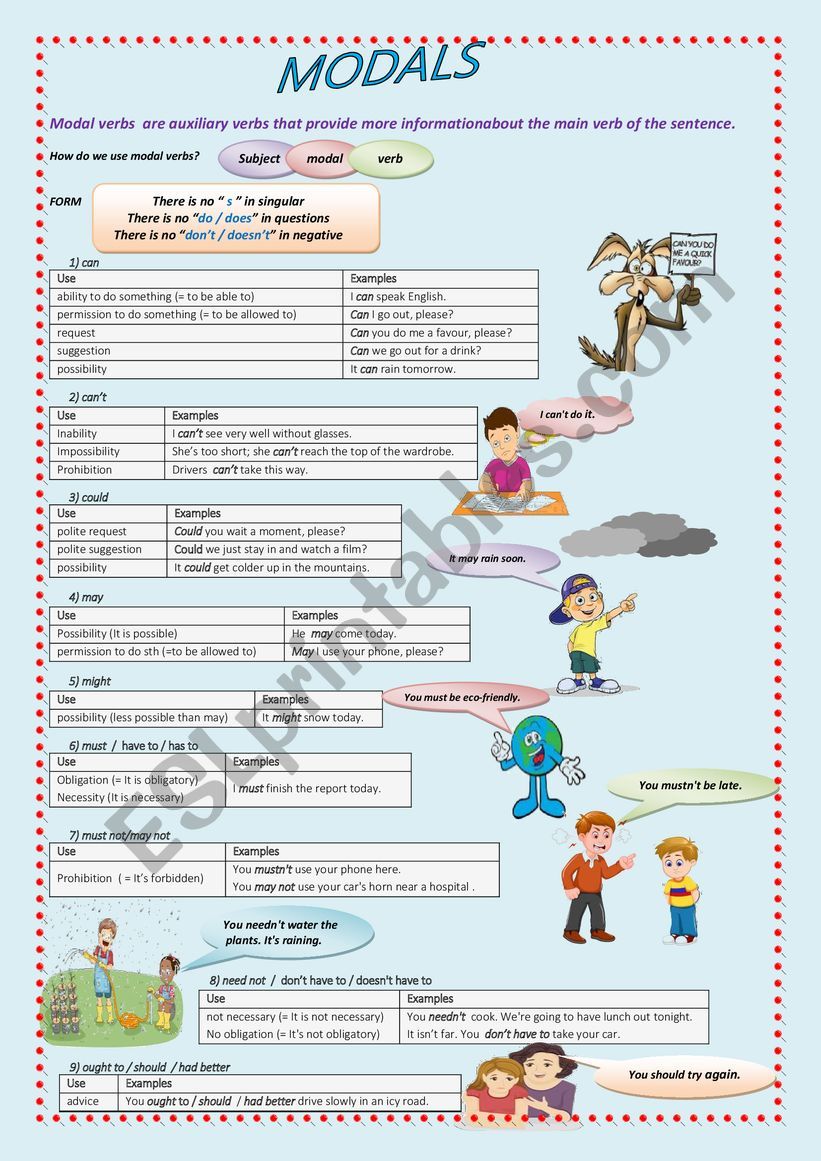



Modal Verbs Can Must Mustn T Needn T Esl Worksheet By Benyoness



Obligation And Necessity Modal Verbs




Speaking Workshop 8 Modals And Tenses Prezentaciya Onlajn
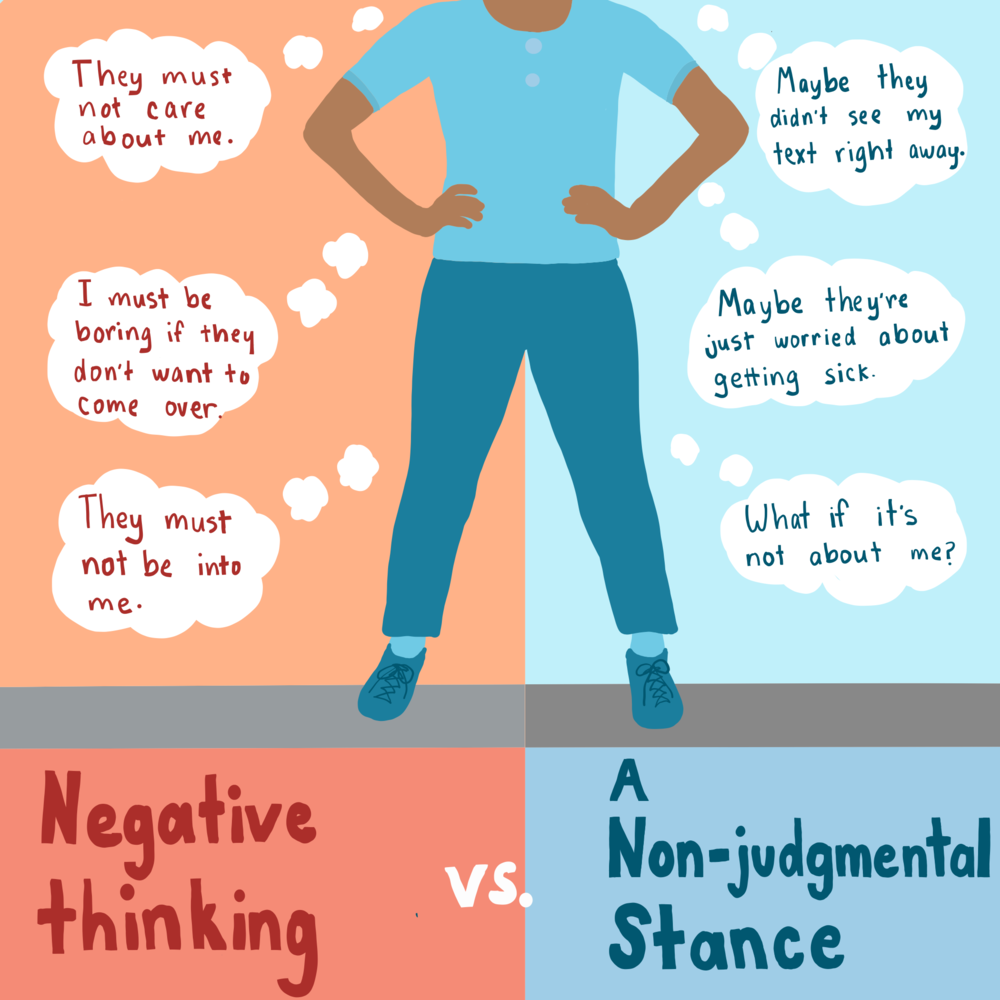



Dear Dwellness I Can T Stop Thinking That It Is My Fault What Do I Do Dwellness



Http Www Farq Xyz Pdf C37 Pdf




Ppt Modal Verbs Powerpoint Presentation Free Download Id
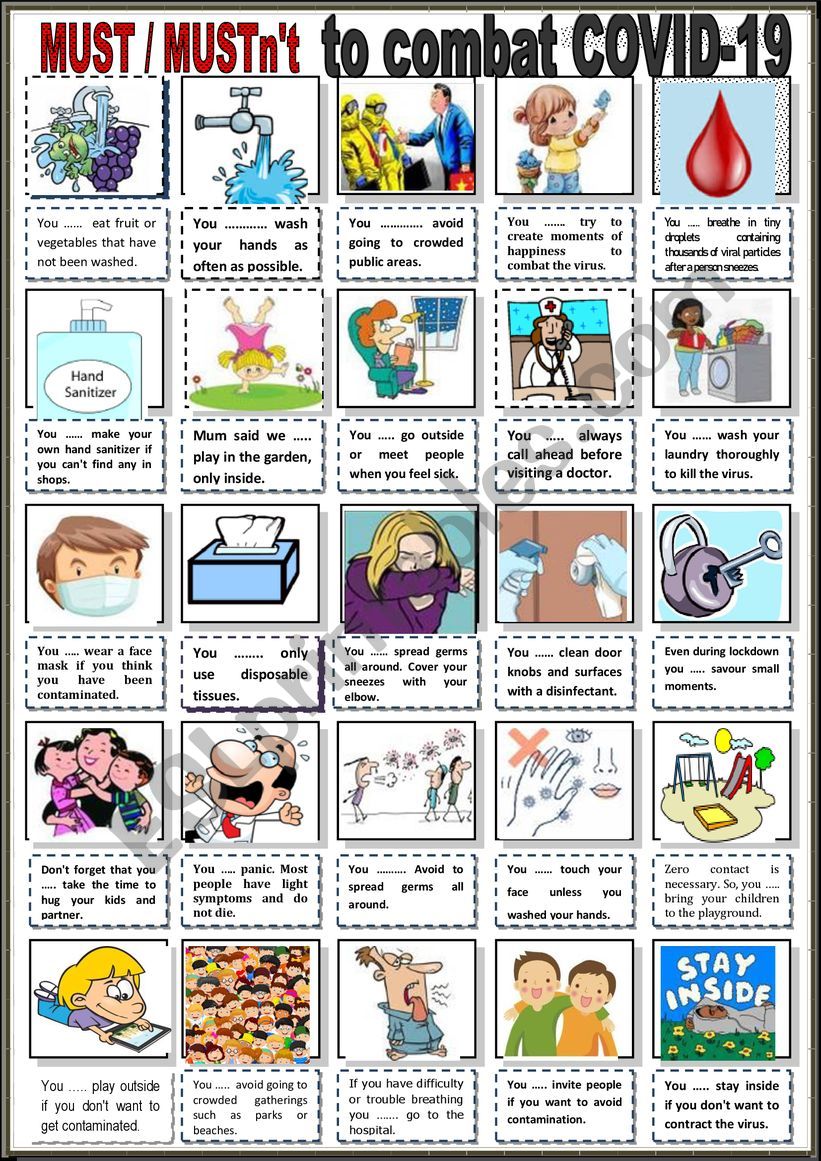



Must Or Must Not To Combat Covid 19 Esl Worksheet By Karagozian




English Grammar Must And Have To Mustn T And Don T Have To Eslbuzz Learning English




Modals Must Have To Should Ought To Can



Modal Verb Monday Mustn T Vs Don T Have To Stars And Stripes English




Pin On School
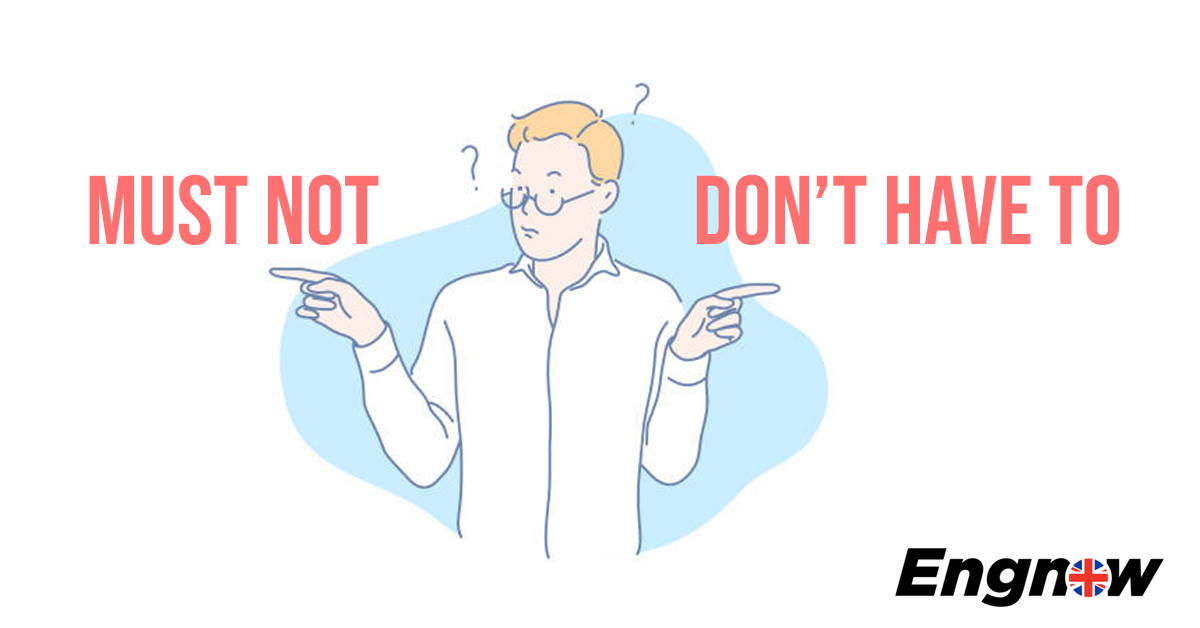



สร ป Must Not Vs Don T Have To ท หลายคนไม ร Engnow In Th เร ยนภาษาอ งกฤษออนไลน




Test English Prepare For Your English Exam




Mustn T Vs Don T Have To English In A Minute Youtube



Modal Verbs Have To And Don T Have To Games To Learn English Games To Learn English



Q Tbn And9gcsje02xoidnqkyh Cqn3dhnoot4mqu2ksbucf4wuoxuk Hxwsiw Usqp Cau




Modal Verbs Online Presentation
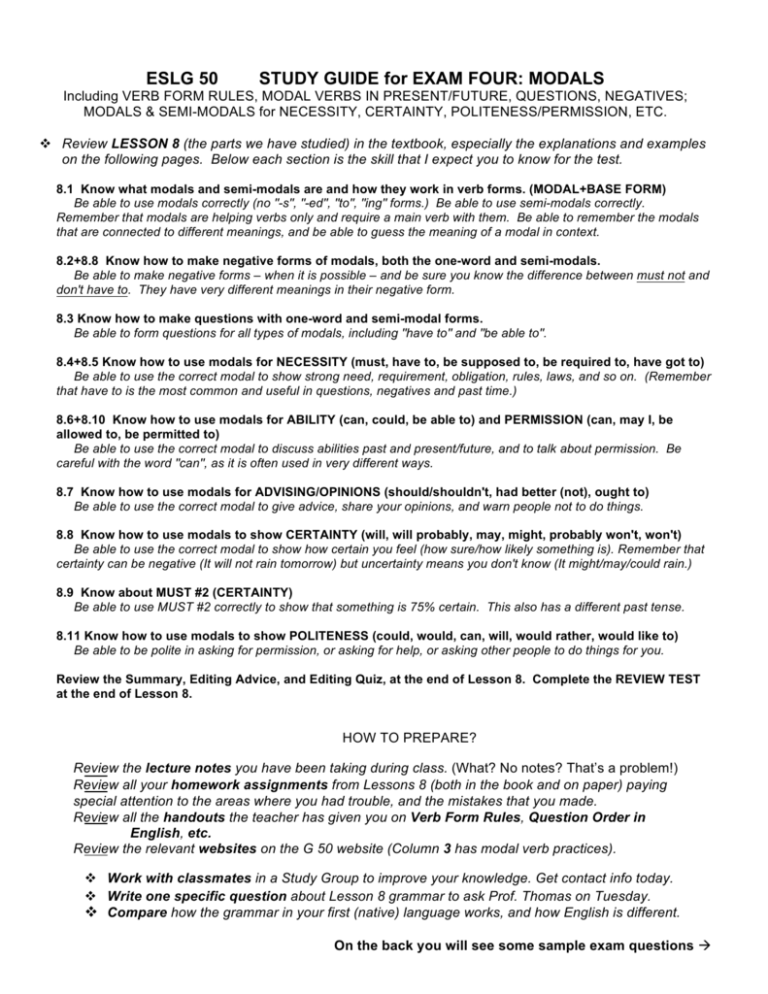



Eslg 50 Study Guide For Exam Four Modals




Modal Verbs Spotlight11 Module 5 Use Dont Take




What S The Difference Must Not Vs Don T Have To Pela
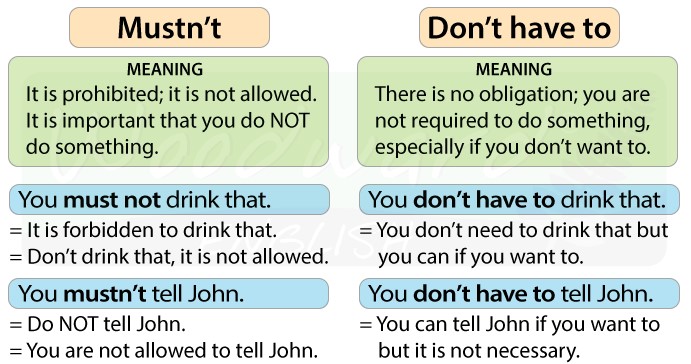



Modals Of Obligation And Prohibition Let S Learn English
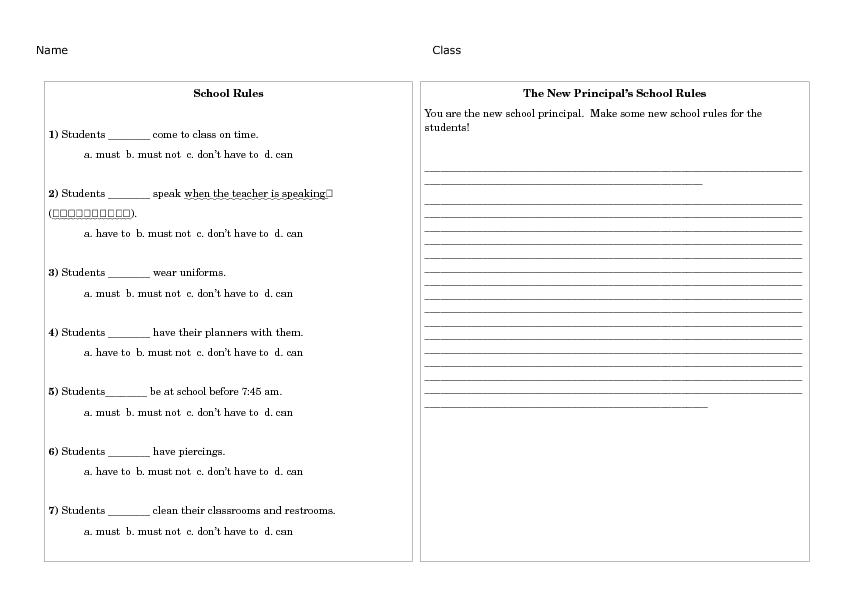



81 Free Must Worksheets



Learn English Grammar Must Have To Needn T Don T Have To Must Not Learn British English




Must Or Have To Worksheet




Grammar Rules Simplified Have To Must Mustn T Don T Have To Needn T Have Didn T Need To English Esl Worksheets For Distance Learning And Physical Classrooms




Elt Concourse Types Of Modality




Modal Verbs Online Exercise For Iv




Juana Moral S English Site Modal Verbs Iii Obligation Must Mustn T Have To Don T Have To Need To
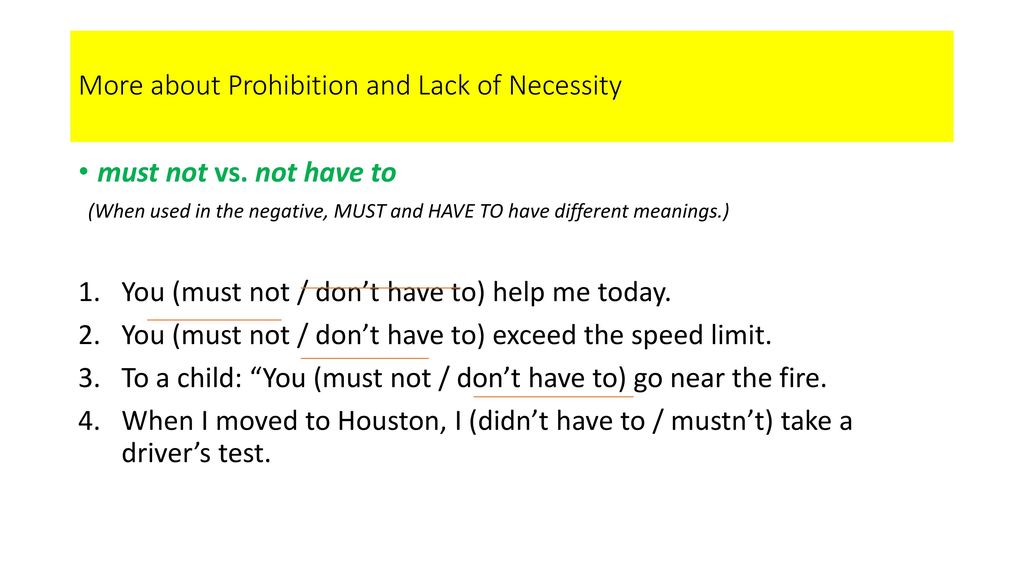



Modals Chapters 9 And Ppt Download




Lesson Idea Must Mustn T Don T Have To Elt Planning




Teaching Must And Have To Necessity Modals Off2class




Must Mustn T Have To Don T Haveto
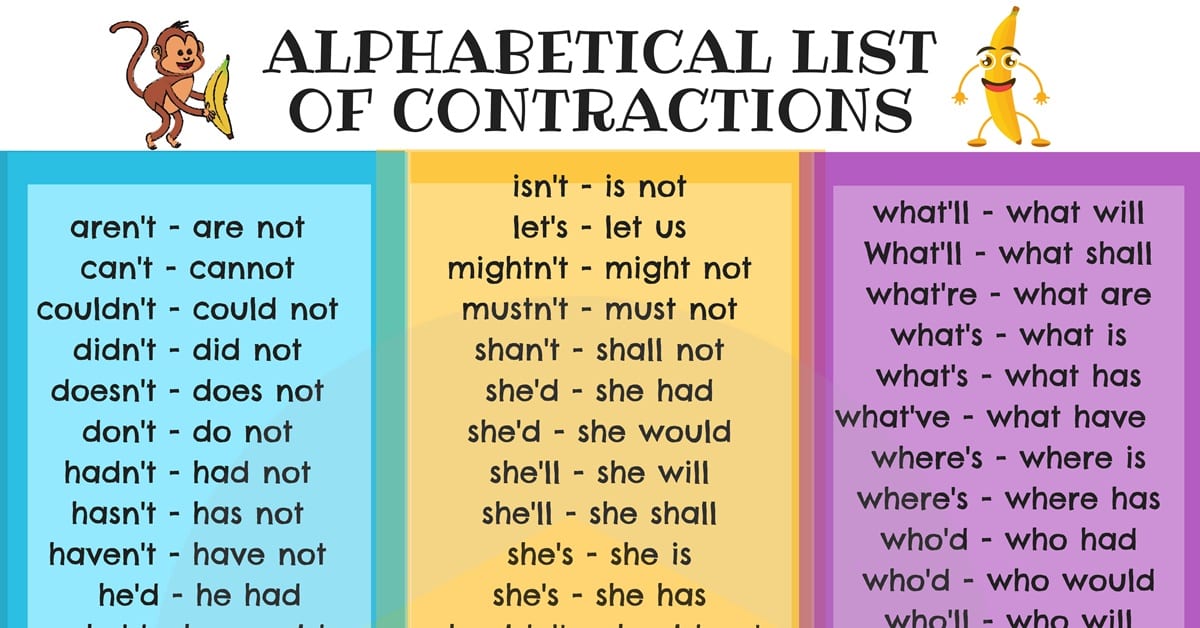



List Of Contractions Contraction Words Used In Writing And Speaking 7esl




Obligation Must Have To Should Present Futurepastexamples Must Subject Must Verb Past Obligation Is Expressed With Had To You Must Go Ppt Download




Modal Verbs Can Can T Must Mustn T Have To Don T Have To Ppt Download
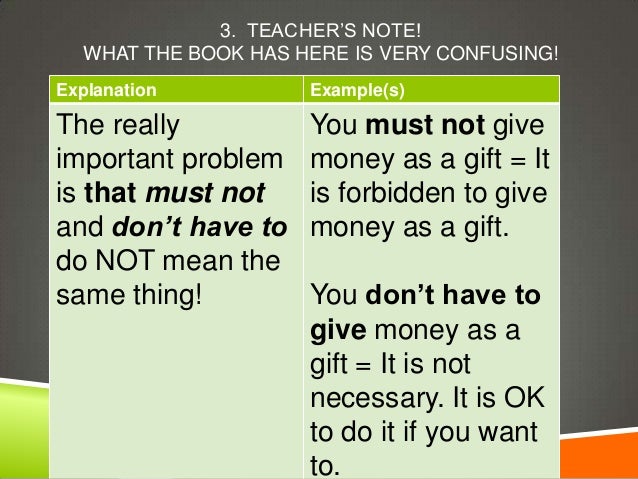



Unit 4 Grammar Notes




Juana Moral S English Site Modal Verbs Iii Obligation Must Mustn T Have To Don T Have To Need To




Don T Have To Vs Mustn T Youtube
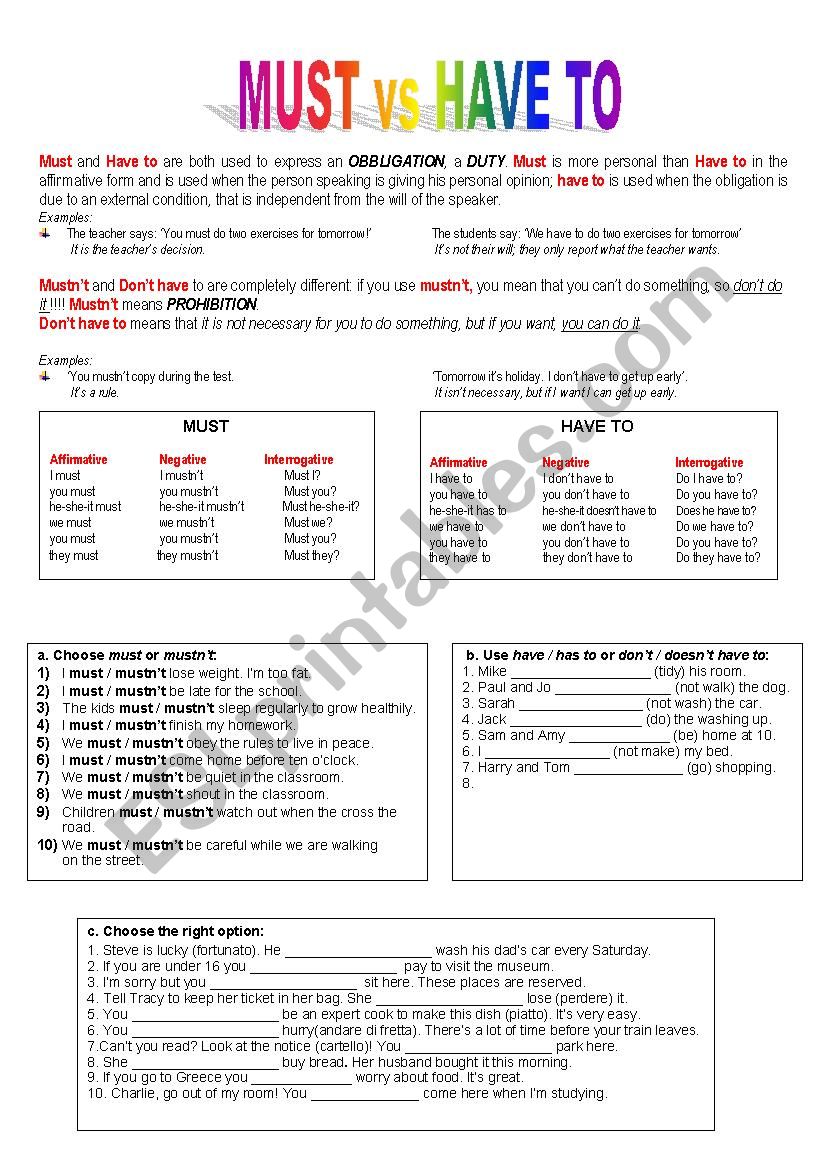



Must Vs Have To Esl Worksheet By Sarasimo97
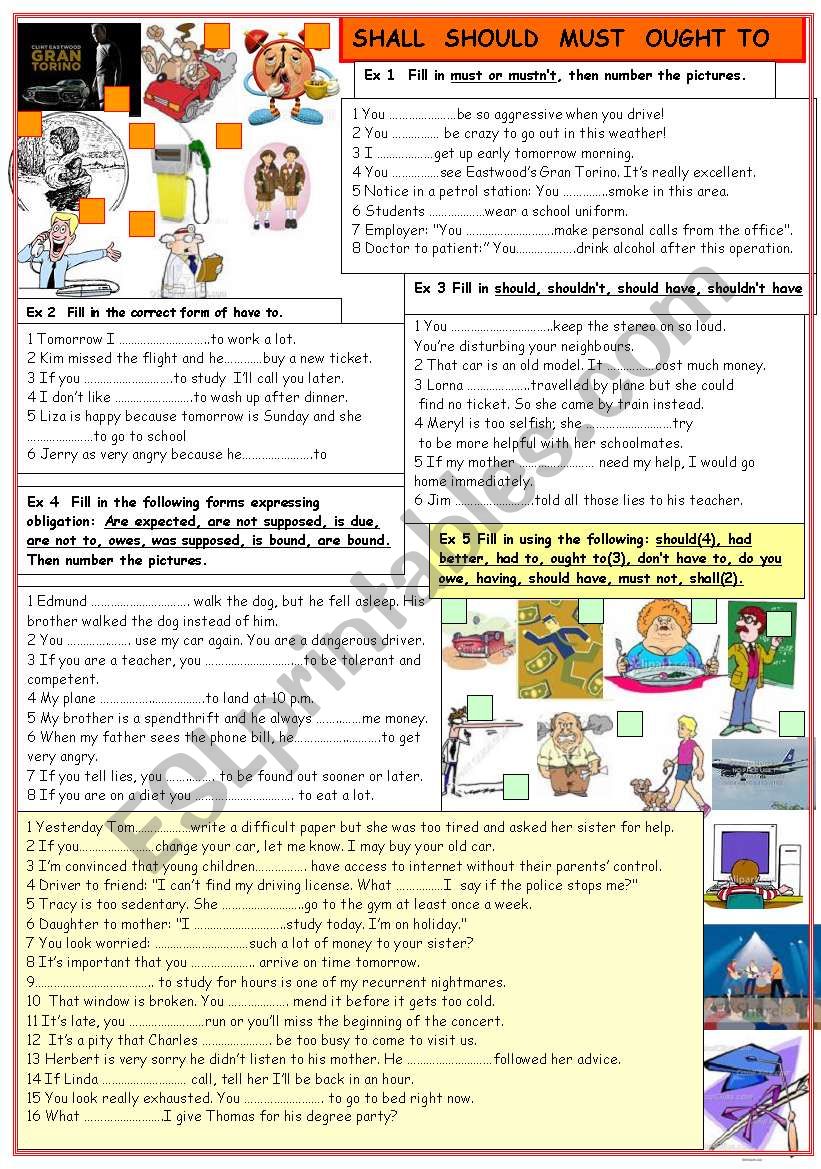



Shall Should Ought To Must Esl Worksheet By Lilianarota
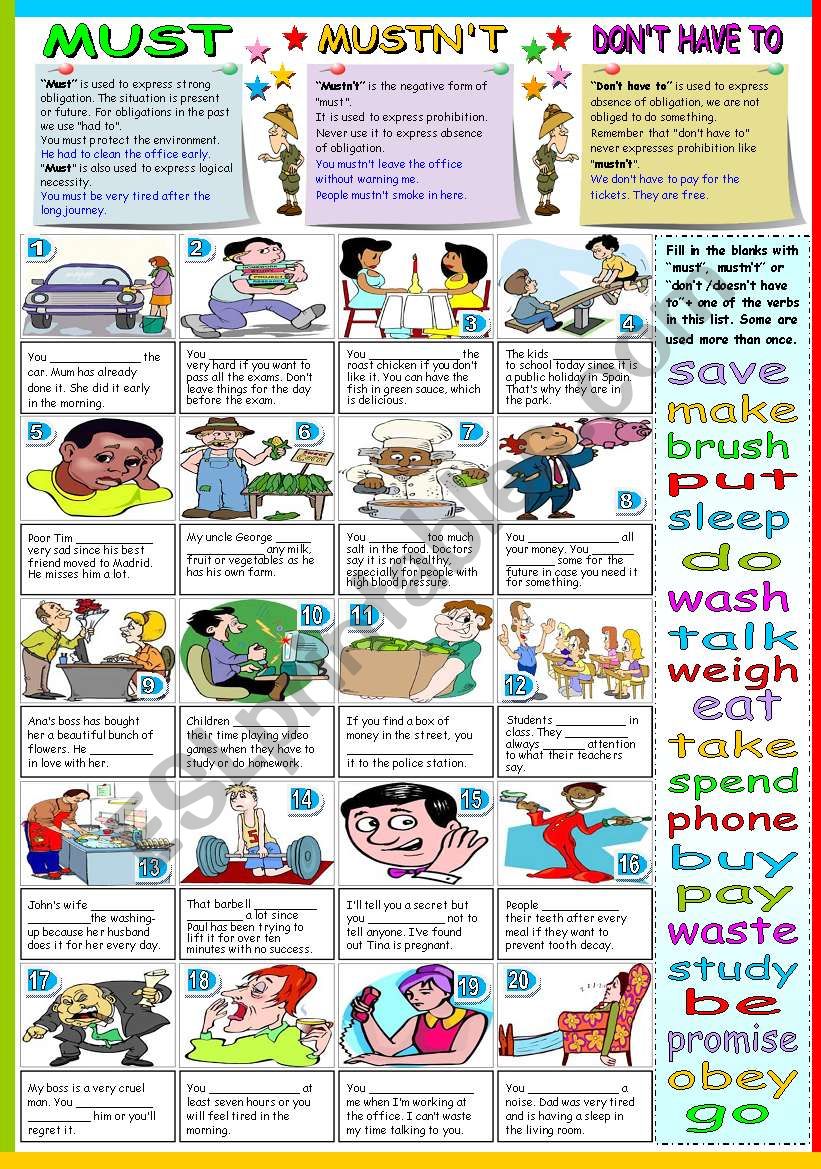



Must Mustn T Don T Have To B W Version Key Included Esl Worksheet By Katiana




What S The Difference Must Not Vs Don T Have To Pela




Modal Verbs Ingles 3 Hotel Business




Have To Don T Have To Mustn T Worksheet



Q Tbn And9gcragdgzm6b3mxbikw0w Kf7j0rtthl Efmli Hb54iqfafxcd Usqp Cau




Must Vs Have To Must Not Vs Don T Have To 7esl Apprendre L Anglais Cours Anglais Anglais




Mustn T And Don T Have To English Esl Worksheets For Distance Learning And Physical Classrooms




Must Vs Have To Build Up Your English Facebook



0 件のコメント:
コメントを投稿